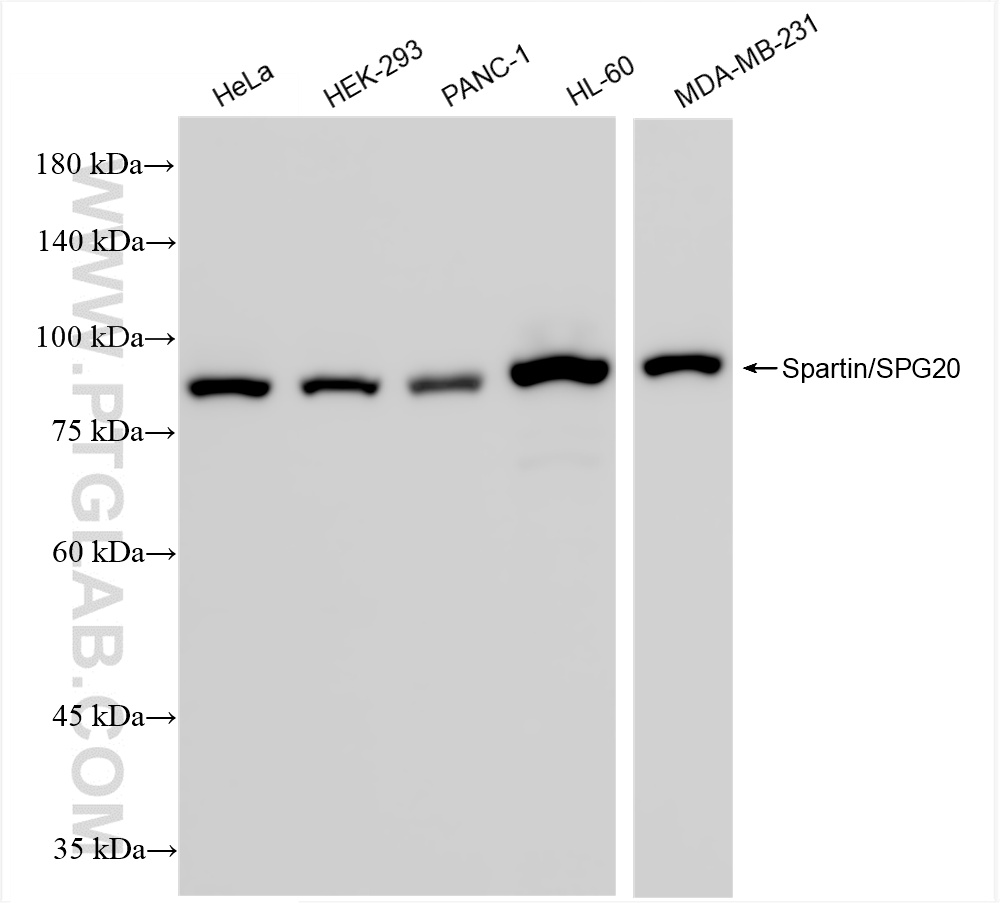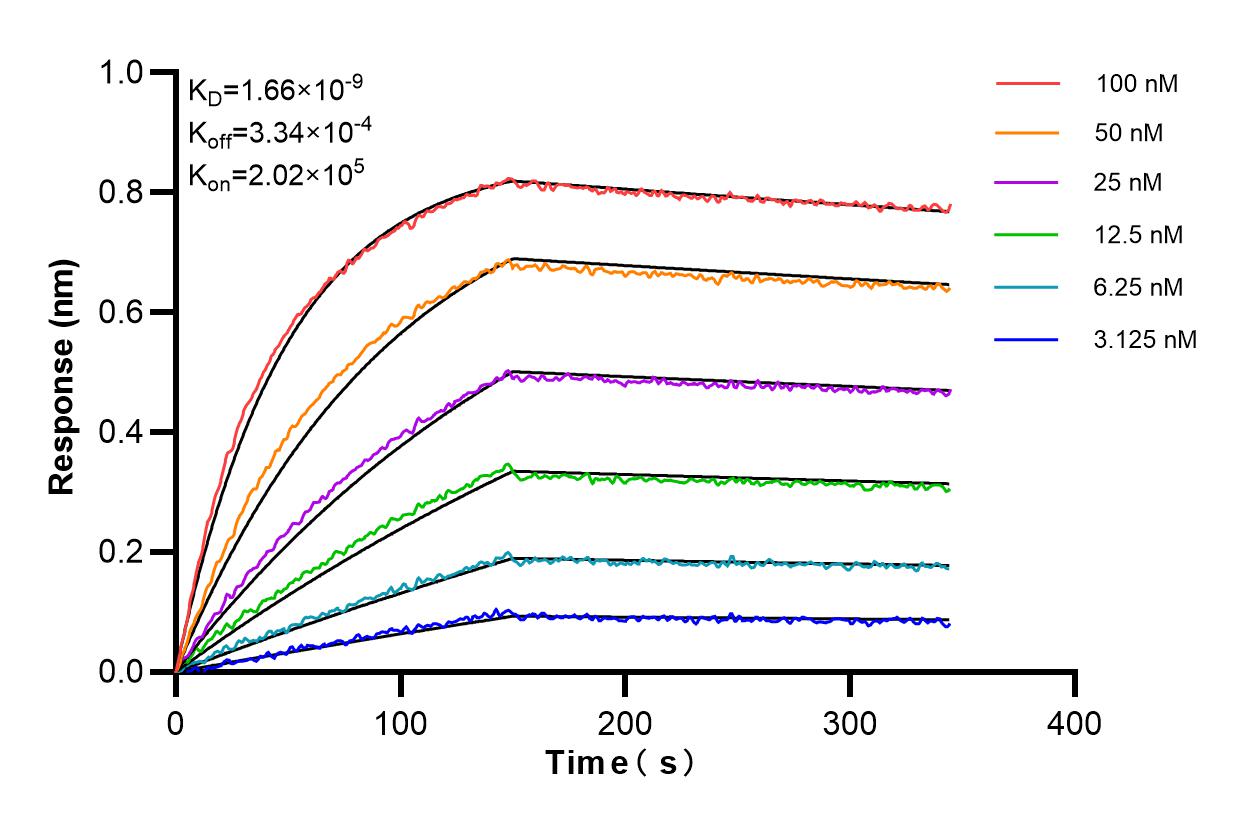验证数据展示
经过测试的应用
| Positive WB detected in | HeLa cells, HEK-293 cells, PANC-1 cells, HL-60 cells, MDA-MB-231 cells |
| Positive IF/ICC detected in | HeLa cells |
推荐稀释比
| 应用 | 推荐稀释比 |
|---|---|
| Western Blot (WB) | WB : 1:5000-1:50000 |
| Immunofluorescence (IF)/ICC | IF/ICC : 1:50-1:500 |
| It is recommended that this reagent should be titrated in each testing system to obtain optimal results. | |
| Sample-dependent, Check data in validation data gallery. | |
产品信息
85938-2-RR targets Spartin/SPG20 in WB, IF/ICC, ELISA applications and shows reactivity with human samples.
| 经测试应用 | WB, IF/ICC, ELISA Application Description |
| 经测试反应性 | human |
| 免疫原 |
CatNo: Ag4815 Product name: Recombinant human Spartin, SPG20 protein Source: e coli.-derived, PGEX-4T Tag: GST Domain: 1-350 aa of BC047083 Sequence: MEQEPQNGEPAEIKIIREAYKKAFLFVNKGLNTDELGQKEEAKNYYKQGIGHLLRGISISSKESEHTGTGWESARQMQQKMKETLQNVRTRLEILEKGLATSLQNDLQEVPKLYPEFPPKDMCEKLPEPQSFSSAPQHAEVNGNTSTPSAGAVAAPASLSLPSQSCPAEAPPAYTPQAAEGHYTVSYGTDSGEFSSVGEEFYRNHSQPPPLETLGLDADELILIPNGVQIFFVNPAGEVSAPSYPGYLRIVRFLDNSLDTVLNRPPGFLQVCDWLYPLVPDRSPVLKCTAGAYMFPDTMLQAAGCFVGVVLSSELPEDDRELFEDLLRQMSDLRLQANWNRAEEENEFQI 种属同源性预测 |
| 宿主/亚型 | Rabbit / IgG |
| 抗体类别 | Recombinant |
| 产品类型 | Antibody |
| 全称 | spastic paraplegia 20 (Troyer syndrome) |
| 别名 | SPG20, KIAA0610, SPART, Spartin, SPG 20 |
| 计算分子量 | 72 kDa |
| 观测分子量 | 75-84 kDa |
| GenBank蛋白编号 | BC047083 |
| 基因名称 | Spartin |
| Gene ID (NCBI) | 23111 |
| 偶联类型 | Unconjugated |
| 形式 | Liquid |
| 纯化方式 | Protein A purification |
| UNIPROT ID | Q8N0X7 |
| 储存缓冲液 | PBS with 0.02% sodium azide and 50% glycerol, pH 7.3. |
| 储存条件 | Store at -20°C. Stable for one year after shipment. Aliquoting is unnecessary for -20oC storage. |
背景介绍
SPG20 (spastic paraplegia 20) gene encodes a multifunctional Spartin protein. SPG20 protein is highly expressed in adipose tissue and may be implicated in endosomal trafficking and microtubule dynamics. SPG20 is mutated in Troyer syndrome, a hereditary spastic paraplegia defined by degeneration of upper motor neurons, recent study showed that regulation of SPG20 on mitochondrial calcium homeostasis may contribute to the pathophysiology of Troyer syndrome. Hypermethylation of SPG20 promoter, found in colorectal cancer patients, may play a role in cytokinesis arrest in colorectal tumorigenesis.
实验方案
| Product Specific Protocols | |
|---|---|
| IF protocol for Spartin/SPG20 antibody 85938-2-RR | Download protocol |
| WB protocol for Spartin/SPG20 antibody 85938-2-RR | Download protocol |
| Standard Protocols | |
|---|---|
| Click here to view our Standard Protocols |




